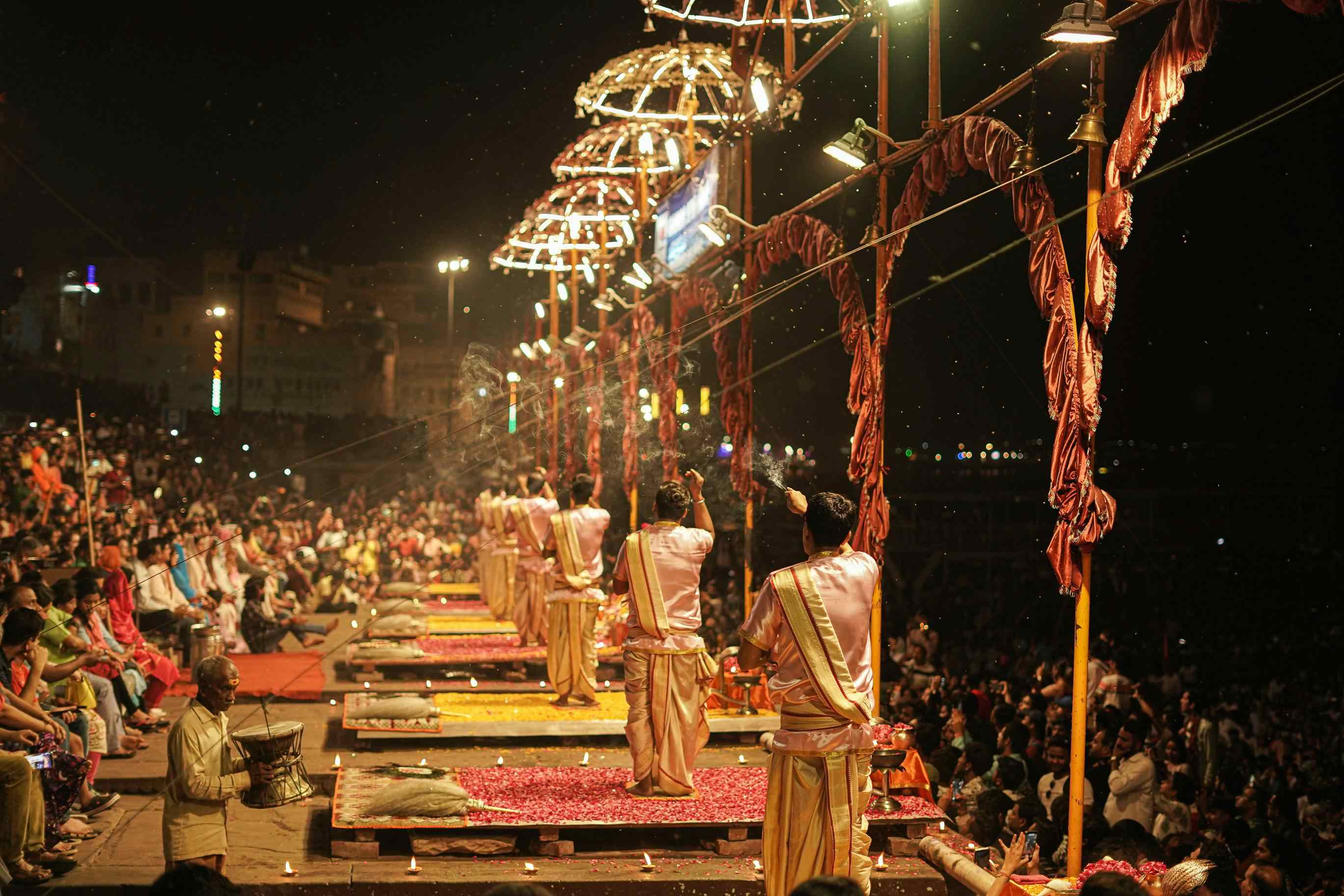Varanasi (Kashi) has long been regarded as the ultimate Hindu pilgrimage destination. Varanasi, also known as Benares, is the world's oldest living city. “Benaras is older than history, older than myth, older even than fiction, and looks half as old as all of them put together,” writes Mark Twain. Hindus claim that dying on the holy land of Varanasi will grant immortality and liberation from the cycle of birth and rebirth. It is the home of Lord Shiva and Parvati. The Ganges in Varanasi is said to have the power to wipe away mortal sins.
Varanasi, which has over 2000 temples, is a major pilgrimage destination for people from all over India. Kashi Vishvanath Temple, Sankat Mochan Temple, Durga Temple, Kal Bhairav Temple, and Mrityunjaya Temple are some of the city's most well-known temples. Most of these temples, according to common opinion, date from the medieval period. Given Varanasi's abundance of temples, it's no surprise that the city is known as "The City of Temples."
A visit to Varanasi by a middle-aged person living in India is almost a given. The reason for this is the site's rich heritage and religious importance, as well as the architecture and sculpture that has preserved the past for all time. It is regarded as one of India's holiest cities, with numerous temples and ghats that attract pilgrims from all over the world. Of note, the fact that the Ganga goes through Varanasi just adds to its holiness!
The land of Varanasi (Kashi) has been the ultimate pilgrimage spot for Hindus for ages. Hindus believe that one who is graced to die on the land of Varanasi would attain salvation and freedom from the cycle of birth and re-birth. Abode of Lord Shiva and Parvati, the origins of Varanasi are yet unknown. The Ganges in Varanasi is believed to have the power to wash away the sins of mortals.
The Ganges is said to have its origins in the tresses of Lord Shiva and in Varanasi, it expands to the mighty river that we know of. The city is a center of learning and civilization for over 3000 years. With Sarnath, the place where Buddha preached his first sermon after enlightenment, just 10 km away, Varanasi has been a symbol of the Hindu renaissance. Knowledge, philosophy, culture, devotion to Gods, Indian arts and crafts have all flourished here for centuries. Also a pilgrimage place for Jains, Varanasi is believed to be the birthplace of Parsvanath, the twenty-third Tirthankar.
Ayurveda is said to be originated at Varanasi and is believed to be the basis of modern medical sciences such as Plastic surgery, Cataract, and Calculus operations. Maharshi Patanjali, the preceptor of Ayurveda and Yoga, was also affiliated with Varanasi, the holy city. Varanasi is also famous for its trade and commerce, especially for the finest silks and gold and silver brocades, since the early days. Varanasi has long been a center of Hindu revival, with Sarnath, the site of Buddha's first sermon after enlightenment, just 10 kilometers away. For millennia, knowledge, religion, history, devotion to God, and Indian arts and crafts have flourished here. Varanasi is also a Jains' pilgrimage site since it is thought to be the birthplace of Parsvanath, the twenty-third Tirthankar.
Varanasi has long been regarded as a great center of study. Varanasi is known for promoting spiritualism, mysticism, Sanskrit, yoga, and the Hindi language, as well as renowned writers like Prem Chand, the ever-famous novelist, and Tulsi Das, the famous saint-poet who wrote Ram Charit Manas. Varanasi, India's cultural capital, has created the ideal environment for all cultural events to thrive. Varanasi has produced many dance and music artists. Ustaad Bismillah Khan (the famous Shehnai player) and Ravi Shankar (the globally renowned Sitar maestro) are all sons of the blessed city or have lived here for a significant portion of their lives.
-
Q: What is the best time to visit Varanasi?
Ans:
The best time to visit Varanasi is from October to March.
-
Q: How to reach Varanasi?
Ans:
Varanasi is served by Lal Bahadur Shastri Airport, which is just 18 kilometres from the city centre. It is the city's closest airport, and it is located in the northwest.
The closest airport to Varanasi is Lal Bahadur Shastri Airport, also known as Babatpur Airport or Varanasi Airport, which is just 18 kilometres away from the capital. -
Q: How to commute in the city?
Ans:
Local buses do not operate in the city; however, state tourism buses link numerous locations in the interior. You can take auto-rickshaws or even walk around in the city.
-
Q: What are the languages spoken in Varanasi?
Ans:
Hindi is the most commonly spoken language in Varanasi. The city being tourist-friendly boasts a good number of English-speaking tourist guides and vendors.
-
Q: What is the weather in Varanasi?
Ans:
Varanasi has a temperate climate that is neither too hot nor too cold.













